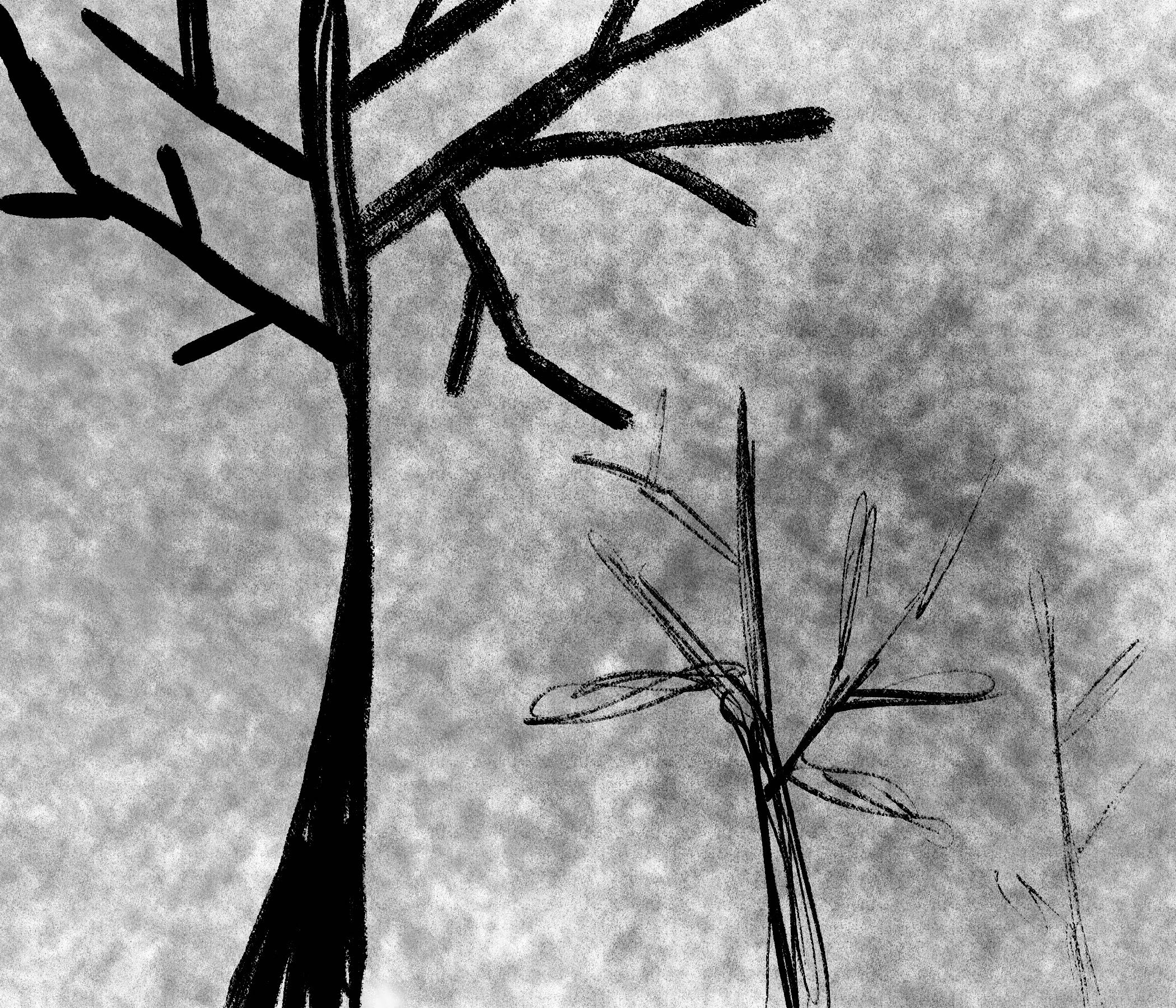Playdead: To follow the thread of dread
April 14, 2023
 Clara Jergins
Clara JerginsPlaydead is an independent game company that has produced two of the most striking and surreal platformers that the genre has ever seen. The gamescapes of “Limbo,” its first project, and “Inside,” its second, are both abstract, rendered heavily symbolic and may at first seem as obscure as our most cryptic dreams. However, through an exploration of their obstacles and their environments—and the unique gameplay that they are each able to provide—one may see that despite their inexplicable presentations, they may each just hit a bit too close to home.
“Limbo” is a game that is just as brilliant as it is brutal. You play as the silhouetted shadow of a child, in the landscape of a forest in grayscale. Your movement is forward, into the unknown, and at the start it seems quite serene. The forest is silent, apart from your steps, and the gleam in your character’s eyes cuts through the darkness. That is, however, until after you’ve learned to leap. At the first pit of jagged spikes, you’ve been impaled. And the light in your bright eyes has gone out.
See, “Limbo” does everything it can to make you want to keep your eyes closed. After recovering from the trauma of witnessing your own death, you’ll continue through the underbrush, through thick weeds. But you’ll still be naive, eyes unfocused, not checking steps. And so the bear trap will cleave your head off at the neck.
Second death down, and perhaps third, as the jump over the bear trap is precise, you feel disturbed, you feel neglected—you feel like a child without anyone’s hand to hold. And so you explore your black and white, two-dimensional world with the blind ambition of youth. But your childhood fears, throughout, are magnified. You see giant spiders, confront lethal bullies and get crushed by the weight of cold machinery. You learn you can’t sink or swim in this cruel world, and so the game forces you to learn to avoid all water.
In “Inside,” your environment is a little less overtly hostile. You are still at some mercy, but you’ll never actually see your own blood. You’re a teenager. An adolescent. And so at the introduction of this second game, it seems the whole world is hunting you, that you’re at stake. Adult captors want you stopped; they want the runaway. Dead or alive, it seems they want you home in bed.
After this initial chase sequence, the persecution and courageous flight, you’re in the country, things are peaceful, but there’s a puzzle. You’re in a barn, and you face a high ledge. You need the box from up on the rafter to help you climb. And so in this 2.5-dimensional world, you’re now forced to backtrack, to reflect. And the answer, as you’ll come to find, may be the first bit of blood on your hands.
There’s a machine in the barn and there are chirping chicks at your feet. They must think you’re their mother, that you’ll feed them. But you’re not yet a nurturer, you’re a trailblazer, you still need forward—and so, for lack of other options, you pull a lever.
The machine whirrs. Your own gears begin to spin. And one chick, by pure chance, gets caught up in the created vacuum. It’s launched by the machine, and as it soars through the air, you, the giver of flight, see where it’s going. It slams hard against the box’s wood.
It seems alright. It got up quickly. You see the clear way out. And so you lure them all, those chicks, from your heels into the machine. You throw them all against your problems, against the box that blocks your way. And so it falls, you’re free to go, and you leave. But a couple chicks cannot follow. They are dead.
And so “Inside” progresses with you wielding abstract machinery, as you avoid the detection of workers who seem slaves to a dystopia. You encounter water, like in “Limbo,” but you can now swim. What’s stopping you is a new presence within. It pulls you down when you wish only to tread water. As you dive into complexities, you fight not to drown. The end to all confusion, you think, must be ahead. And so you confront conformity, culpability and muted colors.
One can only wonder what Playdead has next in mind. An adult protagonist? More complex obstacles? A way to confront life’s next grand step, the next mental ledge? At the moment, as I await their new game, and perhaps my own needed context, I can only guess. I can only attempt to follow the thread of dread. Their next entry is to be set in “a remote corner of the universe.” But I can’t shake the feeling that it will be in my own head.

Comments
Before submitting a comment, please review our comment policy. Some key points from the policy: